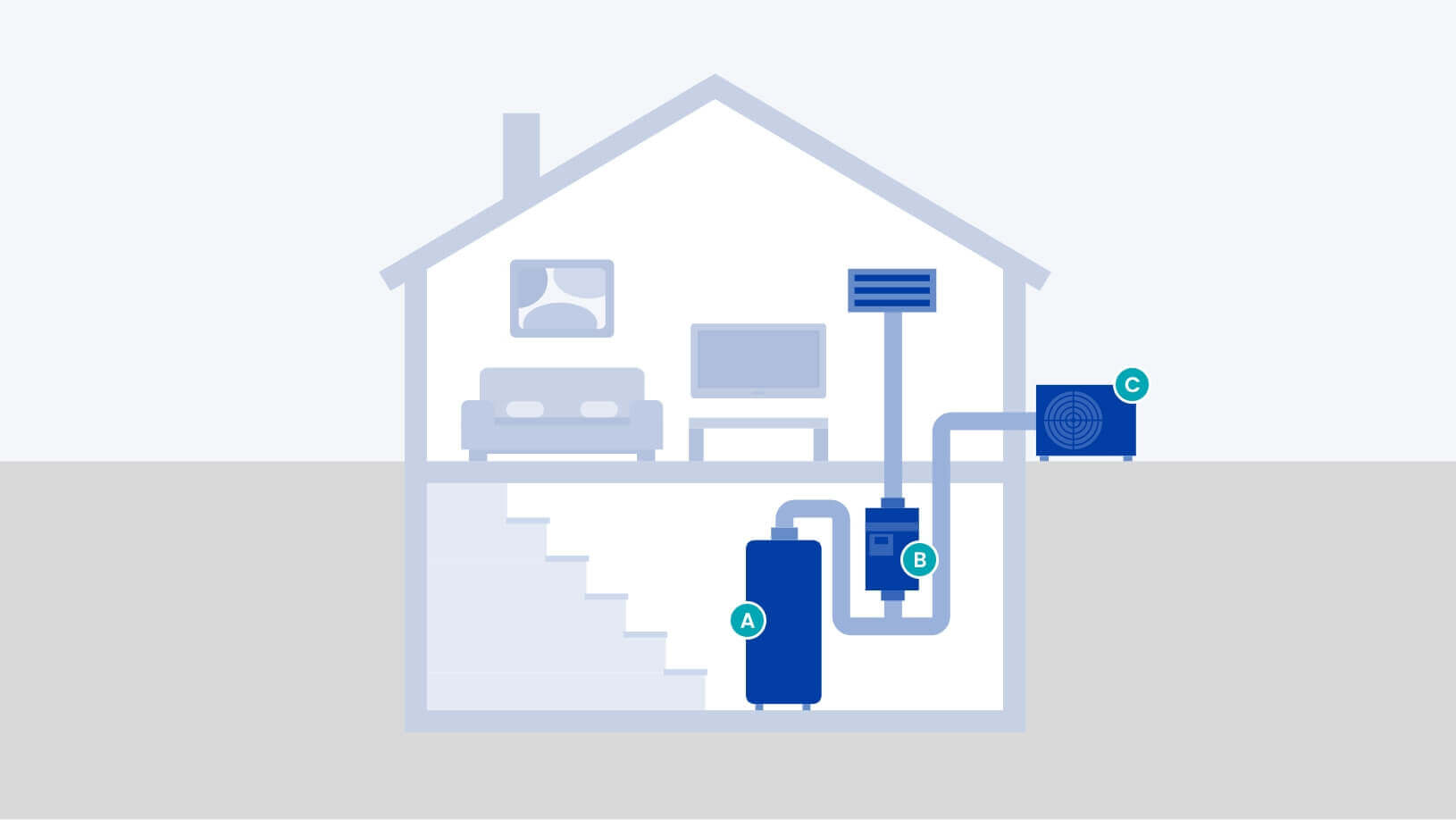How A/c Systems Revolutionize Indoor Atmospheres for Year-Round Convenience
The development of air conditioning systems has actually indisputably changed the means we experience interior settings, supplying extraordinary control over temperature level and convenience throughout the year. These systems go past simple temperature level modifications; they improve indoor air quality and contribute dramatically to power performance.
Temperature Level Control and Adaptability
When it comes to accomplishing year-round comfort, the value of temperature control and adaptability in air conditioning systems can not be overstated. Modern air conditioning devices provide advanced modern technologies such as programmable thermostats and variable rate compressors, which enable customers to keep preferred temperatures with amazing effectiveness.
Versatility is an additional crucial element of contemporary a/c systems. With features like zoning capabilities, customers can tailor temperature setups in different locations of a building, accommodating specific preferences and usage patterns. This degree of control ensures ideal convenience in every room while lessening power waste. Additionally, some systems integrate smart innovation, making it possible for remote gain access to and monitoring through mobile phones. This development allows users to change settings on-the-go, supplying unrivaled convenience and versatility.
In business rooms, this adaptability is particularly valuable, as it permits companies to develop customized atmospheres that enhance efficiency and consumer contentment. Ultimately, the accuracy and adaptability of contemporary air conditioning systems play a crucial role in providing effective, year-round indoor comfort.
Enhancing Indoor Air Quality
In enhancement to temperature control, boosting indoor air top quality is an important facet of modern-day air conditioning systems. Integrating high-efficiency particle air (HEPA) filters, modern-day air conditioners can catch microscopic bits, such as smoke, pollen, and dust, which contribute to respiratory issues and allergic reactions.
In addition, advanced a/c systems usually include functions such as moisture control, which is pivotal in stopping mold and mildew development and keeping ideal dampness levels (HVAC Contractor). Extreme humidity can cause pain, advertise microbial growth, and aggravate certain health problems. By regulating moisture, a/c assist mitigate these dangers, even more enhancing indoor air quality
Furthermore, some systems incorporate air cleansers and ionizers, utilizing technologies that counteract pollutants and shut off air-borne pathogens. This thorough strategy to air quality monitoring ensures a much healthier interior setting, lowering the risk of illness and improving total health. Consequently, the emphasis on air high quality improvement emphasizes the evolving function of cooling systems past plain temperature guideline.
Energy Efficiency Innovations
Modern air conditioning systems have gone through significant advancements in power effectiveness, contributing to both expense financial savings and ecological sustainability. The adoption of high-efficiency compressors, variable speed electric motors, and progressed refrigerants are essential developments that have transformed how these systems operate.
Smart thermostats have actually additionally played an essential role in improving power efficiency. These tools discover individual preferences and adjust cooling down schedules appropriately, guaranteeing that air conditioning systems run only when necessary. Integration with clever home technologies enables push-button control and tracking, additional cutting energy wastefulness.
These cooling agents are not just much better for the environment yet additionally enhance system effectiveness, lining up with global efforts to lower carbon footprints. Innovations in warmth exchanger modern technology have enabled more efficient warm transfer, boosting general system efficiency.
Effect on Health and Wellness
The impact of cooling systems on health and wellness and health is complex, affecting numerous elements of every day life. Primarily, these systems offer relief from severe temperatures, which is vital for susceptible populations such as the senior and people with specific health problems. By keeping a stable interior environment, cooling lowers the danger of heat-related ailments, consisting of warm exhaustion and heatstroke, thus guarding residents' health.

However, it is vital to maintain air conditioning systems consistently to ensure their ideal performance and to prevent possible health and wellness dangers related to improperly preserved units, such as the expansion of germs. Ultimately, when efficiently taken care of, air conditioning systems play a crucial role in boosting comfort, promoting health, and supporting a healthier living atmosphere throughout the year.
Combination With Smart Innovation
Smart technology has reinvented the method a/c systems run, providing boosted control, comfort, and effectiveness. Modern air conditioning devices now integrate perfectly with clever home ecological communities, allowing users to handle their indoor climate from another location via smartphones or voice-controlled tools. This connectivity allows real-time surveillance and changes, making sure that energy consumption is optimized and convenience is kept without the need for consistent manual intervention.
The combination with smart modern technology additionally helps with using sophisticated organizing functions, allowing systems to readjust temperatures according to occupancy patterns and choices. HVAC Contractor. This not only optimizes comfort but likewise lowers unneeded energy usage, adding to lower utility prices and a minimized carbon footprint. Additionally, smart sensing units provide useful information on air quality and system performance, signaling why not try here customers to possible problems before they escalate into expensive fixings
Furthermore, compatibility with clever home assistants such as Amazon Alexa or Google Aide boosts user experience by giving hands-free control and the capability to develop custom-made automation regimens. As clever innovation proceeds to evolve, it will ac heating and air certainly bring additional technologies to cooling systems, ensuring they stay at the leading edge of giving optimum indoor environments year-round.
Conclusion

In addition to temperature level control, improving interior air top quality is a critical facet of modern air conditioning systems. Integrating high-efficiency particle air (HEPA) filters, contemporary air conditioners can catch tiny particles, such as dirt, plant pollen, and smoke, which contribute to respiratory system issues and allergies. By managing moisture, air conditioners assist alleviate these threats, better improving interior blog here air top quality.
The emphasis on air quality improvement emphasizes the developing function of air conditioning systems beyond simple temperature level policy.
Moreover, air conditioning systems contribute to enhanced indoor air high quality by filtering system out pollutants, allergens, and particle issue.